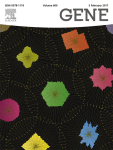 In 2016, researchers published a paper showing that an RNA molecule may be overactive in breast tumor tissue. But after reading the paper, three biologists believed the data supported the opposite conclusion.
In 2016, researchers published a paper showing that an RNA molecule may be overactive in breast tumor tissue. But after reading the paper, three biologists believed the data supported the opposite conclusion.
What happened after that is a tale of misunderstandings and unnecessarily bruised feelings. We’ve seen plenty of cases where researchers ignore criticism, which at first glance seemed to be the case here. But upon closer inspection, it wasn’t. Continue reading A journal printed a sharp critique of a paper it had published. If only it had checked with the authors first.


